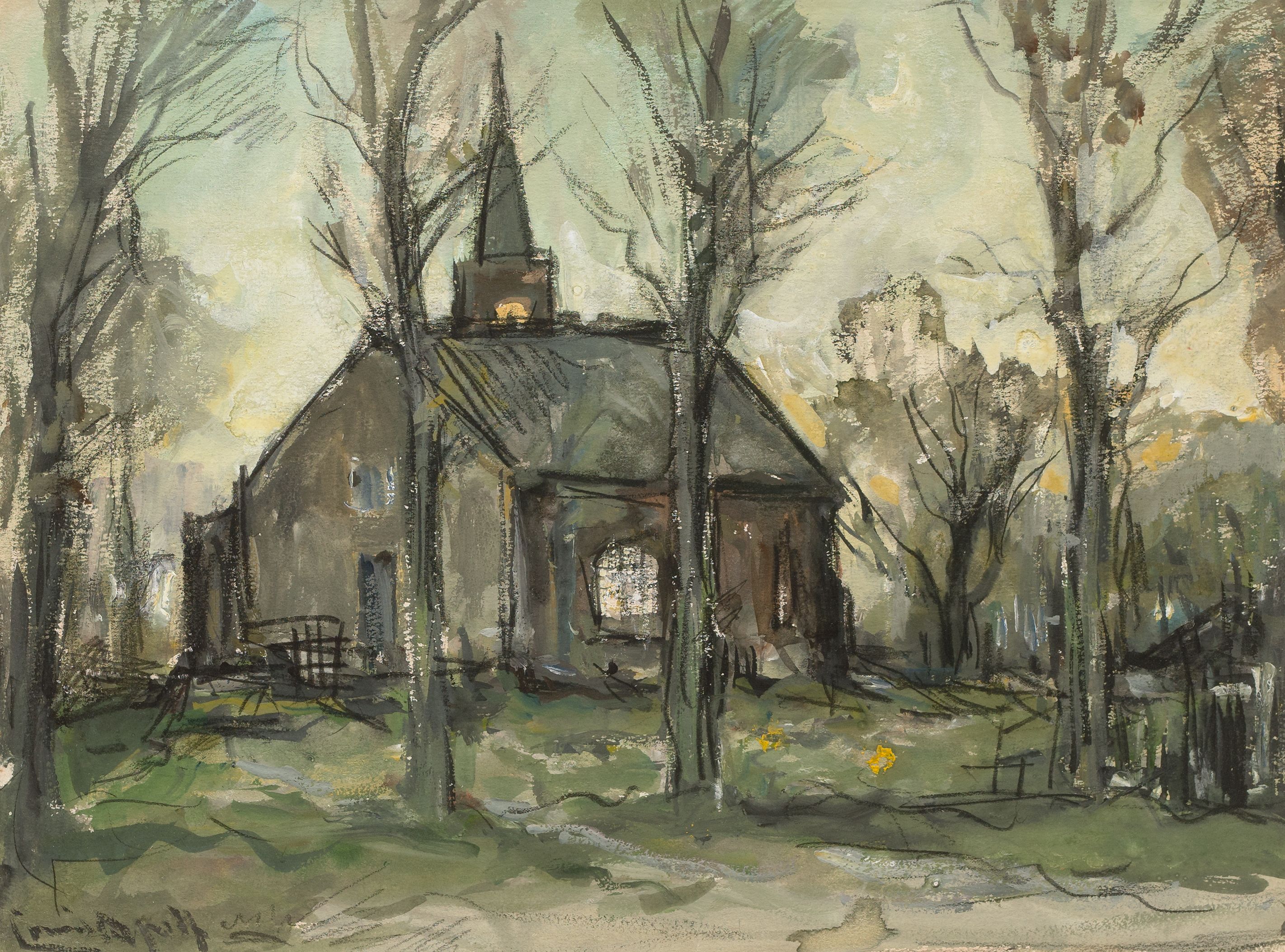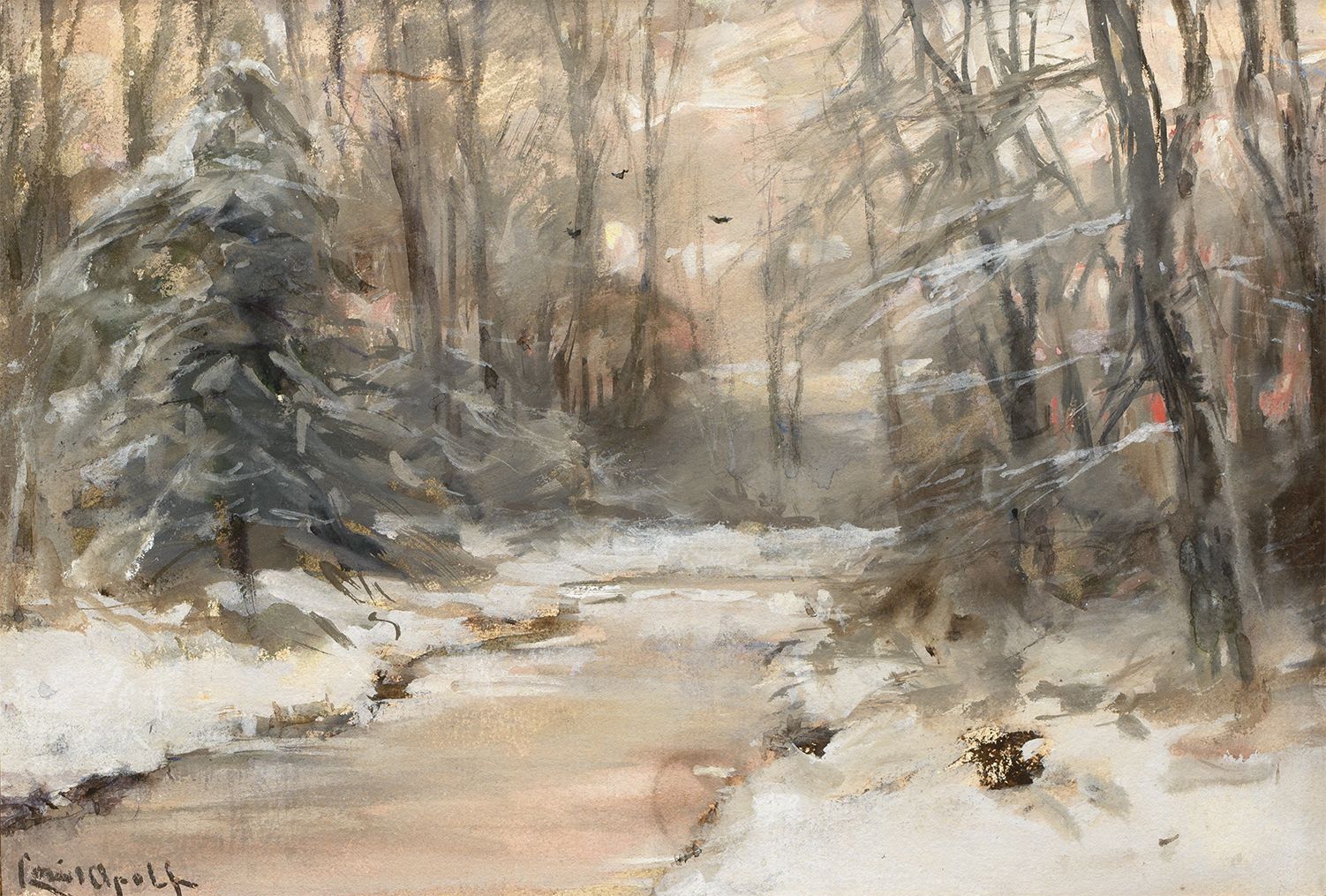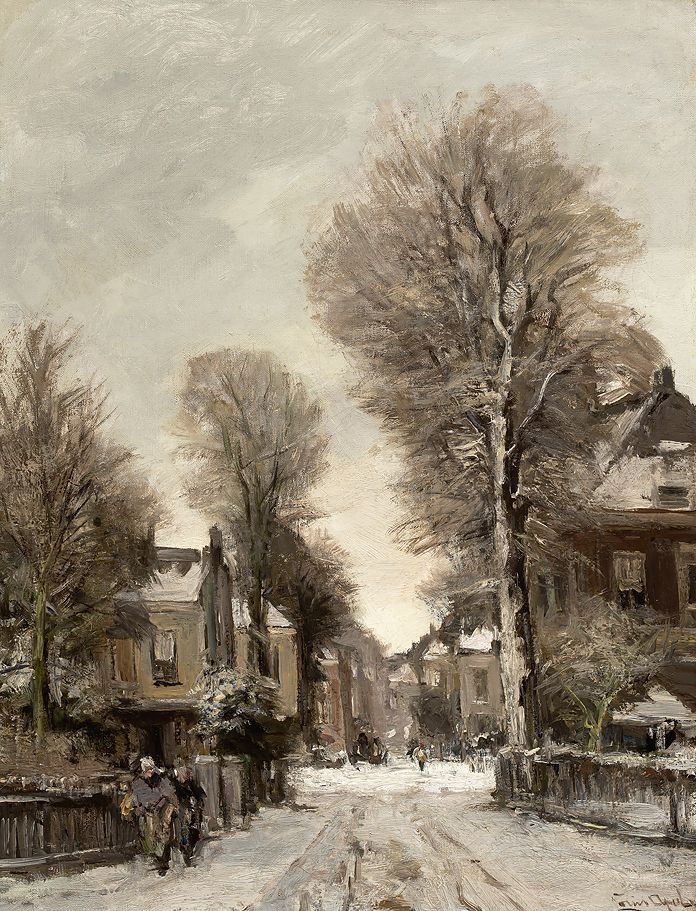L.F.H. (LOUIS) APOL 1850 The Hague - 1936 The Hague View on a Church
Gouache / Paper: 16,5 x 22 cm
- This artwork can be viewed in our gallery
- Call us for more information: +31 26 361 1876
- World wide shipping available
Width: 22 cm
Over L.F.H. (LOUIS) APOL
Den Haag Louis Apol is one of the most important painters of the Hague School, best known for his winter landscapes and woodland scenes in the snow. The artist found his finest landscapes mainly in the surrounding countryside and parks of The Hague and around the (eastern Dutch) city of Arnhem. He joined the "Dutch Barbizon", an artist colony in the east of The Netherlands (Arnhem, Oosterbeek ) known for the “plein-air” painting and the un-Dutch hilly landscape. He met several well-known Dutch painters like Anton Mauve, one of the founders of the Hague School. Louis Apol was a pupil at the Royal Academy of Art (1867-1872) in The Hague. In 1871, he received the Royal Subsidy for Painting and in 1874 a silver medal at an exhibition in Amsterdam. As a young man he started his career with a good reputation, receiving from King William III of the Netherlands an important medal of merit and by selling a large painting to the Rijksmuseum in Amsterdam. In 1880 Apol travelled with a scientific expedition to Spitsbergen on the polar schooner Willem Barentsz to recreate a historical journey from the 16th century. During the trip, he sketched, drew and painted in watercolours the icy surroundings and the polar fauna they encountered, from a purpose build enclosed observation tower on deck. The impressions and sketches of this trip inspired him for his “Winters” for the rest of his artistic life. Many of the sketches are to be found in the collection of the Maritime Museums in Amsterdam and Rotterdam. His style is definitively impressionistic, developing from the more detailed academic to the loose and forceful brushstrokes he favoured in his later work. People play only a minor role on his canvases: no ice skaters or other joyful scenes. All attention is on nature, the wintery light and the all over atmosphere. His compositions invite the viewer to step into the scene, with paths and woodcutters’ trails opening up at the front. His many shades of white giving the landscape a realistic liveliness. His “greens” (i.e. non winter) paintings are rare. Apol's work is to be found in the Rijksmuseum in Amsterdam, the Teylers Museum in Haarlem and the Kunstmuseum in The Hague and in some major private collections.





